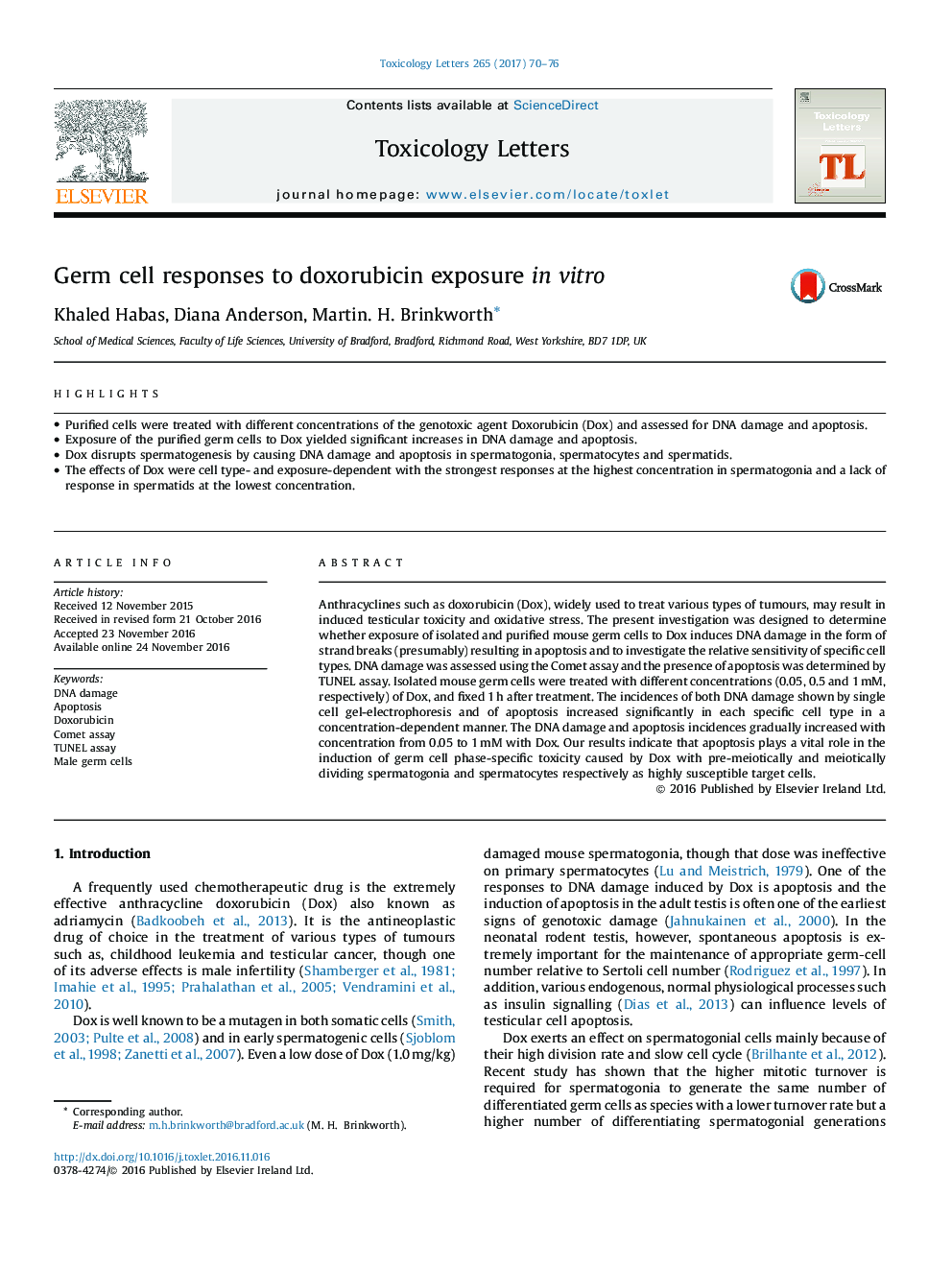| Article ID | Journal | Published Year | Pages | File Type |
|---|---|---|---|---|
| 5562257 | Toxicology Letters | 2017 | 7 Pages |
â¢Purified cells were treated with different concentrations of the genotoxic agent Doxorubicin (Dox) and assessed for DNA damage and apoptosis.â¢Exposure of the purified germ cells to Dox yielded significant increases in DNA damage and apoptosis.â¢Dox disrupts spermatogenesis by causing DNA damage and apoptosis in spermatogonia, spermatocytes and spermatids.â¢The effects of Dox were cell type- and exposure-dependent with the strongest responses at the highest concentration in spermatogonia and a lack of response in spermatids at the lowest concentration.
Anthracyclines such as doxorubicin (Dox), widely used to treat various types of tumours, may result in induced testicular toxicity and oxidative stress. The present investigation was designed to determine whether exposure of isolated and purified mouse germ cells to Dox induces DNA damage in the form of strand breaks (presumably) resulting in apoptosis and to investigate the relative sensitivity of specific cell types. DNA damage was assessed using the Comet assay and the presence of apoptosis was determined by TUNEL assay. Isolated mouse germ cells were treated with different concentrations (0.05, 0.5 and 1Â mM, respectively) of Dox, and fixed 1Â h after treatment. The incidences of both DNA damage shown by single cell gel-electrophoresis and of apoptosis increased significantly in each specific cell type in a concentration-dependent manner. The DNA damage and apoptosis incidences gradually increased with concentration from 0.05 to 1Â mM with Dox. Our results indicate that apoptosis plays a vital role in the induction of germ cell phase-specific toxicity caused by Dox with pre-meiotically and meiotically dividing spermatogonia and spermatocytes respectively as highly susceptible target cells.
